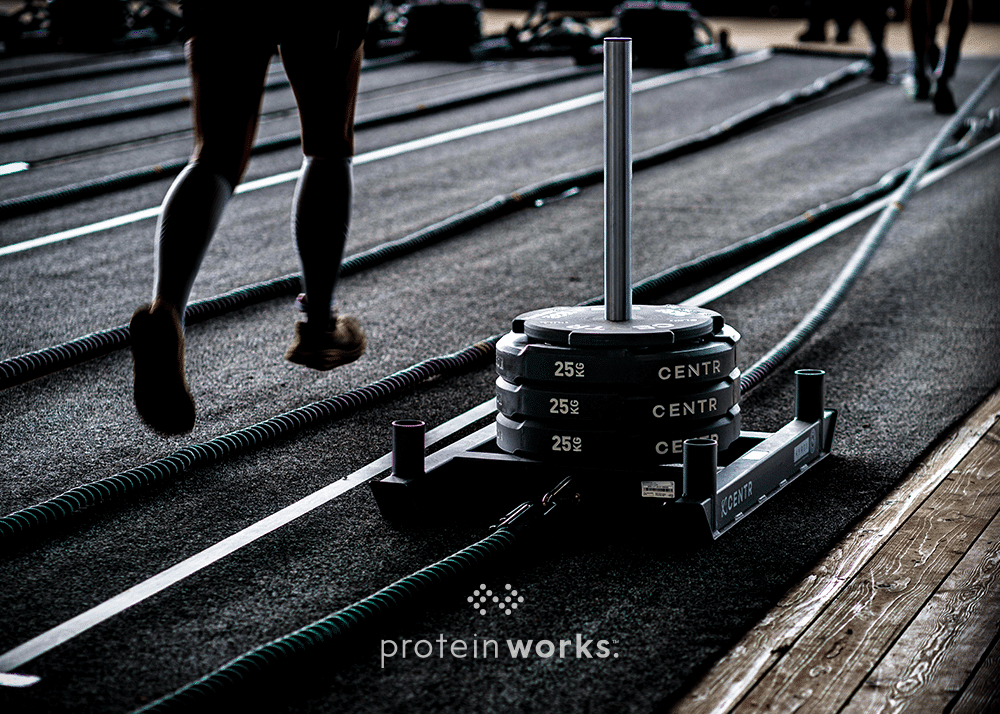
Cardio Before Or After Weight Training?
Cardiovascular exercise (cardio) refers to any exercise that raises your heart rate. This type of physical activity is essential for overall health and well-being. For many, cardio forms a core element of their physical activity regime and / or sport and the necessity to engage with this type of training is readily apparent. However, for those that are more interested in body composition, particularly those looking to become as big and muscular as possible the question of how much cardio to do and when best to do it are particularly important questions.
 Fear of Cardio
Fear of Cardio
Those that are reluctant to engage with cardio tend to have either (or both) of the following concerns:
- Cardio will make me lose muscle.
- Cardio will slow down my muscle-building progress.
It is important to outline that cardio does not burn muscle. Consequently, those concerned with point number one above should stop worrying about this immediately. The second point however, does warrant closer attention.
The Importance of Cardio
To attain a lean, defined physique a person is required to have a low body-fat percentage. This can be achieved by diet alone, however, through a combination of cardio and dieting the mental and physical demands of dieting are much more manageable. Furthermore, the additional benefits that come with including cardio within any weight-training / body-building regime make the addition of cardio a must for anyone concerned with long-term health and physical and mental well being. Therefore, the question should never be whether to do cardio or not, it should always be when is the best time to do it? As an ideal, anyone serious about training should attempt to separate their work-outs between cardio or weight-training and not combine. However, for those whose lifestyles cannot accommodate this time-consumption it often comes down to a choice of before or after weights.
Cardio Before Weights?
Cardio before weight training is an ideal way to warm up the muscles and prepare the body for a weight-training workout. However, for those concerned with muscle building any excessively intense cardio workout before weights will be detrimental to the bodies’ capacity to complete the following weight workout. This will reduce the potential for lifting maximal weights and completing maximal repetitions and compromise body composition gains accordingly. For these reasons alone for those concerned with gaining lean muscle cardio before weight training should be kept to a minimum and considered only as a warm-up. However, if your goal is to burn as much fat as possible maximal effort should be afforded to cardio training and what is left invested in weights after this has been completed.
Cardio After Weights?
If the main aim is lean muscle mass and / or strength then cardio after weights is the most sensible option of the two. The most efficient way to increase muscle size and strength is through hard weight training that pushes the muscles to their maximum capacity. This is also referred to as ‘going to failure’ – this is where the body cannot physically perform any more repetitions of a particular exercise. A repeated and systematic training to failure process is best accomplished when the bodies’ main source of energy for muscle contraction (glycogen) is at peak levels. If you undertake any significant cardio workouts before lifting weights then glycogen stores will be depleted and the weight lifting session will be much less effective and produce lesser gains.
Another potential benefit of this ordering is that if you deplete glycogen stores through weight training before cardio then this requires the body to delve deeper into its fat reserves to fuel any post-weight cardio. This potentially makes post-weight cardio an effective fat burner – even if it is at a lesser intensity. However, the post weight-training window is a vital time to take on board nutrients to repair, rebuild and recover after a weight workout and any cardio undertaken at this time to delay this process will diminish the potential benefits dependent upon duration and intensity.
Cardio: Summary
- Cardio should form a cornerstone of any physical activity and healthy living plan.
- Combining Cardio with a suitable diet is the best way to burn body fat.
- Cardio at anytime of the day will be effective – it is the accumulation of time and caloric balance that is important.
- Cardio and weight training should be split into separate sessions if possible.
- Cardio before or after weights depends upon your goals.


 Fear of Cardio
Fear of Cardio
No Comments yet!